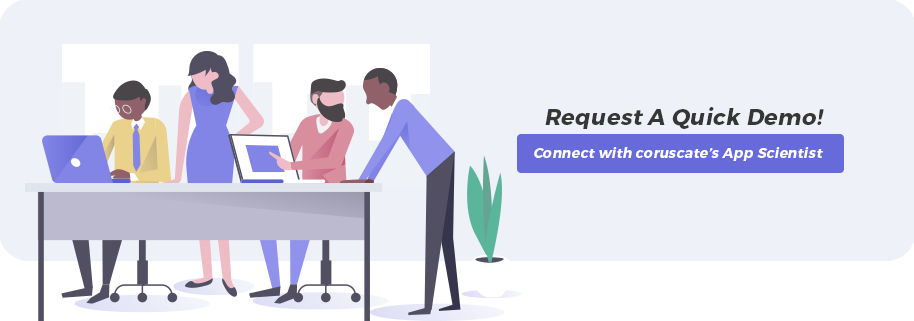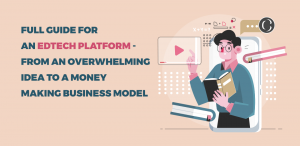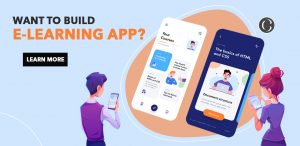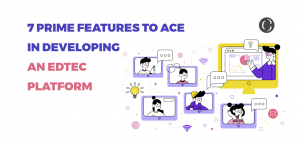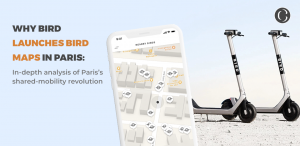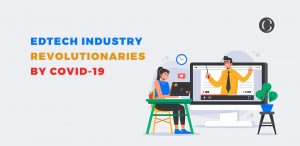Things To Keep In Mind While Developing An EdTech App Like Khan Academy
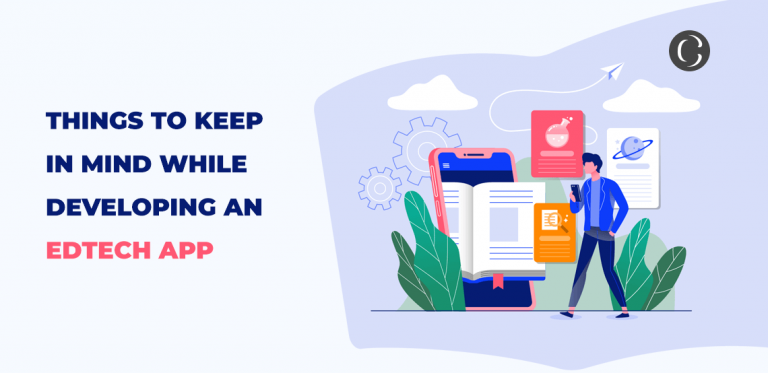
EdTech Initiatives By Khan Academy
In December 2019, Tata Trusts reported a five-year association with Khan Academy to create tech-empowered, high-calibre and localized education assets across India by giving a customized, authority-based learning experience.
Although this exertion will probably improve educational open doors in a nation where millions are out of luck, the hypothesis of troublesome development predicts that this move could affect the U.S. instruction showcase too.
Key to the hypothesis of disruptive innovation is distinguishing where troublesome contestants start.
These organizations normally gain their traction in zones of nonconsumption—that is, territories where the current option in contrast to existing arrangements is nothing at all because the ordinary resident can’t expend what the market is advertising.
There can be numerous explanations behind nonconsumption, for example, value (the current item is excessively costly for the normal client), topography (the current item is just offered in a brought together area), or absence of expertise (the normal individual can’t utilize the current item).
A couple of guides to outline the point: TurboTax discovered early achievement, not by following people who previously utilized the administrations of an individual accountant, yet by following people who could either not bear the cost of or secure access to one.
Honda attempted and fizzled at showcasing its low-power SuperCub to the customary cruiser advertise, yet picked up footing among open-air devotees after a Honda chief took a random ride up a California slope.
For each situation, as the organization focused on nonconsumers of the standard market, it had the option to sharpen its item while serving people that officeholder firms had no motivating force to follow.
These items improved after some time to contend with the current market on conventional proportions of execution and offered new execution benefits regarding cost, openness, or comfort for sure.
For each situation, as standard clients grasped the problematic advancement, officeholder firms fell by the wayside.
In the U.S. K–12 education segment, be that as it may, there is close to widespread utilization. Although there is a little level of self-taught youngsters in the United States, essentially every kid is taken on a school or something to that effect.
This reality powers Khan Academy (just as other EdTech organizations) to oblige the standard training market that regularly requests essential online guidance and instructional exercise devices, however, confines the sorts of experimentation and development that could somehow or another be conceivable.
However, in creating nations, nonconsumption is an alternate story. In India, there are 1.4 million youngsters ages six through 11 who don’t go to class, and 42 per cent of all students drop out before finishing elementary school.
These numbers are what make Khan Academy’s organization with Tata Trusts so fascinating because the organization will manage high volumes of nonconsumers who face different difficulties than youngsters who are as of now going to class.
Moreover, these people aren’t requesting a similar degree of execution that schools in India can give because their present option is no tutoring by any means.
In this sort of condition, Khan Academy could have prolific ground in which to plant troublesome seeds—that is, imaginative arrangements that make adapting perpetually straightforward, open, and helpful.
As these seeds develop and bloom, their natural product could almost certainly be devoured by Khan Academy’s developing overall client base (and truly, here in the United States) as the organization intends to “give a free, world-class instruction for anybody, anyplace.”
Khan Academy isn’t the only one in its endeavours to address instructive nonconsumption across India.
India-based Educational Initiatives intends to give mixed learning openings in zones where there are extreme instructor deficiencies and now and again, no certified educators by any stretch of the imagination.
It structured its product, called Mindspark, to offer fundamental guidance and to determine explicitly the most widely recognized false impressions in some random point.
By getting educators who don’t have profound substance information yet who can control, inspire, and energize development among students, Educational Initiatives’ learning places are an aid for understudies who might somehow or another have no place to learn.
Zaya Learning Labs is another supplier intending to address serious difficulties inside Indian schools.
A Mumbai-based startup, Zaya Learning Labs attempts to set up mixed learning in schools where high student to-educator proportions and helpless framework make viable instructing and adapting almost outlandish.
Zaya Learning Labs sets up a Station Rotation model that permits educators to work with littler gatherings of understudies for direct guidance and utilizations instructing partners to deal with the innovation empowered stations.
Like Educational Initiatives, schools working with Zaya Learning Labs serve understudies whose option would be close to nothing by any stretch of the imagination.
It is critical to take note of that even though the mixed learning models utilized by Educational Initiatives and Zaya Learning Labs are not new, the development occurring in territories of nonconsumption could bring about imaginative answers for standard instructive markets.
By not being attached to customary proportions of execution or quality, Educational Initiatives, Zaya Learning Labs, and Khan Academy have chances to make new ways to deal with guidance and learning while at the same time offering the advantages of availability, straightforwardness, and reasonableness.
All things considered, U.S. EdTech organizations right now feel no danger from Khan Academy’s association with Tata Trusts or even mull over only Indian online educational plan suppliers, for example, Educational Initiatives or Zaya Learning Labs.
For what reason would it be advisable for them too? They have no inspiration to follow students most of the way over the world in Indian ghettos.
However, as these apparatuses improve after some time, the danger to existing firms will be promptly evident.
It will be basic, in this way, for existing organizations to nail the occupations to be done of students and instructors, both all through the study hall.
Advances and items travel every which way, however, occupations to be done endure after some time.
Confining their organizations around occupations to be done, rather than items to be sold, might be the current organizations’ smartest option for maintaining a strategic distance from disturbance.
Top features to consider for developing educational app like Khan Academy
1. Personalized Learning – Students practice at their own pace, first filling in quite a while in their understanding and afterwards quickening their learning.
2. Trusted Content – Made by specialists, Khan Academy’s library of trusted, norms adjusted practice and exercises cover math K-12 through early school, language structure, science, history, SAT®, and the sky is the limit from there. Everything free for students and educators.
3. Tools To Empower Educators – With Khan Academy, educators can distinguish holes in their students’ understanding, tailor guidance, and address the issues of each student.
Khan Academy Kids offers a free mobile app for finding educational purposes for Reading, Math, Writing, and more.
This is an amazing app for young minds learning through interactive games, activities, videos, etc. that are aligned to Common Core Standards.
Best of all is the parents’ section that allows them to manage/track their kids as well as play cooperative games.
The organizer of the computerized training philanthropic Khan Academy told CNBC on Monday that online guidance can’t completely supplant face to face class — however said there are approaches to augment the advantage for students
“In a perfect world, it’s intuitive. Instructors are posing students to answer inquiries, work with one another in the virtual breakout meetings,” said Khan, whose not-for-profit is bolstered by the Bill and Melinda Gates Foundation. “Furthermore the instructors are there to respond to any inquiries, assist students with defining objectives.”
And afterwards every day, students go through 30 to 40 minutes, contingent upon their age, chipping away at their own through model projects utilizing an advanced learning instrument, for example, the Khan Academy, which offers its administrations for nothing, he said.
Whatever the online program is, Khan said, significantly, it enables educators to screen students’ advancement — how much time they’re spending on issues and what they’re getting right or wrong.
Major U.S. government-funded school areas have as of late declared their arrangements for the fall as the country’s COVID-19 episode quickens in specific states.
For instance, the regions for San Francisco, San Diego and Los Angeles have all said they will be beginning the fall with far off guidance.
New York City showed not long ago it intends to invite most students to schools a few days every week, utilizing a supposed crossbreed or mixing learning model that remembers far off class for different days.
In reporting the plans, Mayor Bill de Blasio said internet learning was “not great,” however city authorities contended the arrangement is important to take into consideration social removing in homerooms.
The country’s biggest government-funded educational system, with 1.1 million understudies, anticipates endorsement from the state.
President Donald Trump has been pushing areas to completely revive, taking steps to retain government subsidizing from schools that neglect to continue face to face classes this fall.
Trump and others note that schools being open is essential to the social advancement for youngsters, just as the U.S. financial recuperation.
“Schools need to open,” Trump said in a meeting that broadcast Sunday on Fox News.
“Youngsters need to go to class, and there are issues when you don’t go to class, as well.”
Youngsters are less inclined to turn out to be truly sick if they are tainted with the coronavirus.
Be that as it may, a key piece to the discussion about opening schools for face to face guidance is their job in adding to the infection’s spread all through the more extensive network.
White House wellbeing consultant Dr Deborah Birx has demonstrated more examinations should be done to decide transmission of the infection among youngsters.
Get on-road with the most astonishing edtech application
Our team has an expertise in designing online educational platforms that are both user friendly yet technologically advanced. We help our customers decide what fits their business goals and design the application accordingly.
Get in touch with our team to know more.
